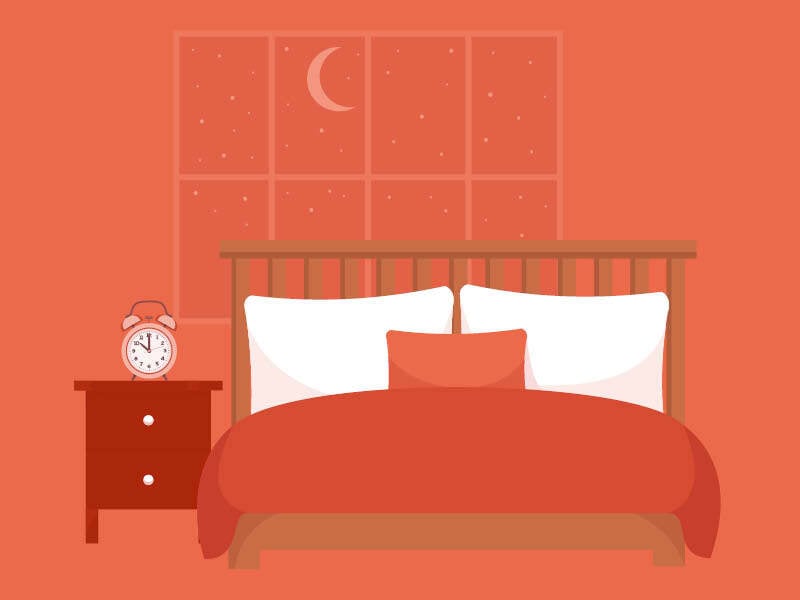The sleep factor (KS1-5)
These innovative, evidence-based lessons, created in partnership with experts at Evelina London Children’s Hospital’s sleep medicine service, build on the success of the original 2019 pack.
At each key stage, the lesson materials will help raise awareness of the impact of good quality sleep, and equip young people with the skills and strategies they need to get a better night’s rest.

Over half of young people get less than 8.5 hours of sleep on a school night.
And this is taking place against a backdrop of wider mental health challenges, such as the worrying decline in young people’s happiness. Ongoing research into the bidirectional relationship between mental health and sleep, has highlighted that:
- quality sleep is crucial for good mental health
- sleep issues can worsen mental health conditions, and
- mental health problems can lead to poor sleep.
Research also suggests that young people are spending less time outdoors and being active, and more time on screens — all of which can impact sleep quality. It’s crucial then, that they are supported to manage these different influences, and able to make informed decisions to promote good quality sleep, and their broader health and wellbeing.
At a practical level, optimising sleep has beneficial impacts for pupils’ ability to maintain attention, learn, and perform in sport, as well as potentially boosting their mood.
Our lessons are the ideal place to start with this topic, and ensure you cover relevant areas from the statutory RSHE guidance around ‘understand[ing] the importance of sufficient good quality sleep for good health and recognis[ing] that a lack of sleep can affect weight, mood and ability to learn’.
The lesson packs
As well as incorporating the latest research into sleep and associated health outcomes for young people, we’ve updated the design of the key stage 1-4 packs and added a brand new pack for key stage 5/post-16 students.
- At KS1 pupils explore things people can do to rest and relax so they are ready for bedtime
- At KS2 pupils explore helpful sleep routines and consider why they are important for a healthy lifestyle.
- At KS3 students explore the importance of — and habits to help achieve — healthier sleep, particularly during adolescence.
- At KS4 students explore the impact of sleep on brain function and wellbeing, assess how lifestyle choices can affect sleep quality and analyse the efficacy of a range of sleep strategies.
- At KS5/post-16 students learn about managing sleep routines independently, and the impact of sleep on professional and personal wellbeing.
Each of the lesson packs include PDF lesson plans, slides and pupil resources, along with teacher guidance.
Listen to or read our interview with sleep doctors Mike Farquhar and Tom Maycock to learn more about the lessons and why it's so important that we keep sleep on the agenda and the PSHE education curriculum.
About Evelina London’s sleep medicine service
Evelina London’s sleep medicine service care for children and young people, from newborns to adolescents, with a wide variety of sleep problems. The service is one of the few comprehensive children's sleep centres in the UK, and sees more than 3,000 children each year. The team provide clinical evaluation, diagnosis and management of children with all forms of sleep disorders including narcolepsy and sleep apnoea. The service also supports sleep difficulties in children with neurodevelopmental difference such as autism and attention deficit hyperactivity disorder (ADHD). Find general information and advice for teenagers about sleep at: www.evelinalondon.nhs.uk/TeenSleep.
Download the lesson packs
Join the PSHE Association to unlock a range of exclusive member benefits:
- Access to member resources
- Access to book member-only training and events
- Subject specialist support via phone or email

